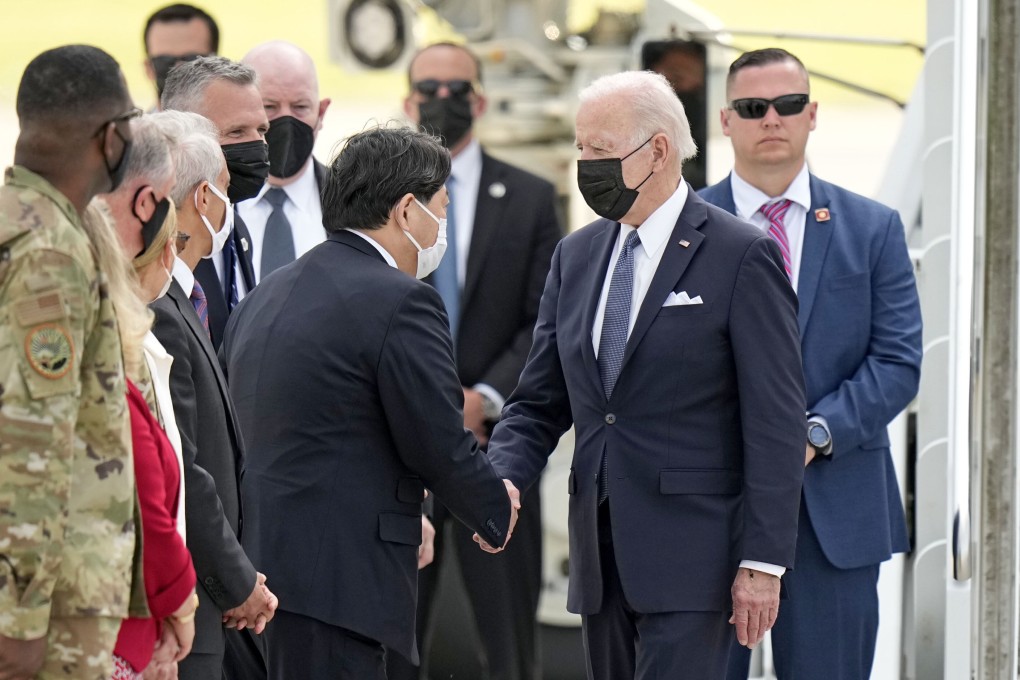Advertisement
Joe Biden launches IPEF initiative, with 12 Asia-Pacific economies signing on
- US Secretary of Commerce Gina Raimondo says the Indo-Pacific Economic Framework seeks to restore ‘US economic leadership’ across the region
- The plan aims to make Indo-Pacific countries beyond China more attractive as manufacturing hubs for US companies, Raimondo adds
Reading Time:4 minutes
Why you can trust SCMP
99+

US President Joe Biden announced on Monday that 12 countries in the Asia-Pacific had joined the US’ Indo-Pacific Economic Framework (IPEF), an agreement covering supply chains, digital trade, clean energy and anticorruption efforts – and that Beijing views with much suspicion.
Advertisement
The countries – Australia, Brunei, India, Indonesia, Japan, South Korea, Malaysia, New Zealand, the Philippines, Singapore, Thailand and Vietnam as well as the US – account for 40 per cent of the world’s GDP, according to the White House.
The countries said in a joint statement the pact would help them collectively “prepare our economies for the future” following disruptions caused by the coronavirus pandemic and Russia’s invasion of Ukraine.
The announcement was made in Tokyo, the second stop of Biden’s first trip to Asia as US president, a tour closely watched by Beijing.
Also on Monday, Chinese Foreign Minister Wang Yi pledged to “facilitate development of the Asia-Pacific”.
Advertisement
“China will continue to broaden high-level opening up, push for high-quality construction of the Belt and Road Initiative and facilitate the interconnectivity of the Asia-Pacific and safeguard security and stability of the regional supply chain,” Wang said in a virtual address to the United Nations’ Economic and Social Commission for Asia and the Pacific.

Advertisement